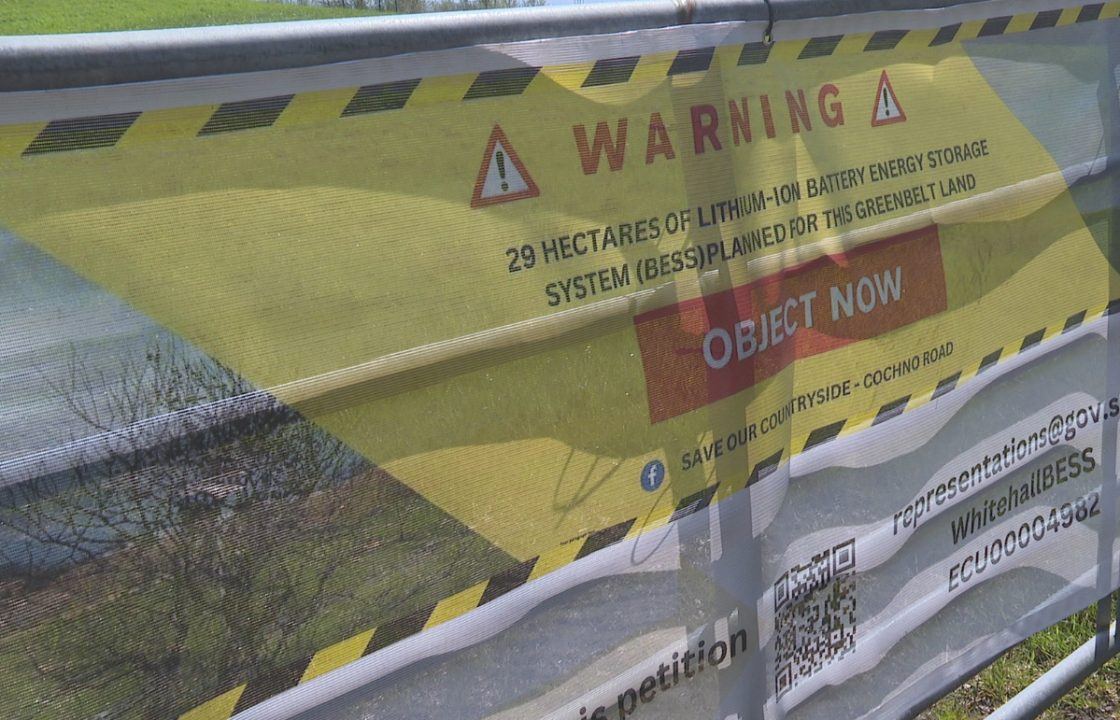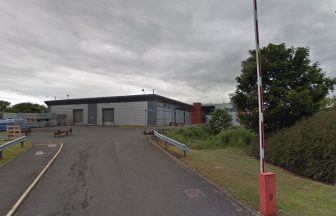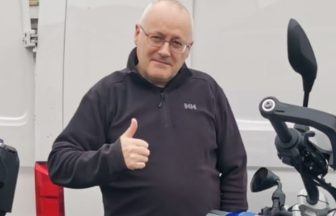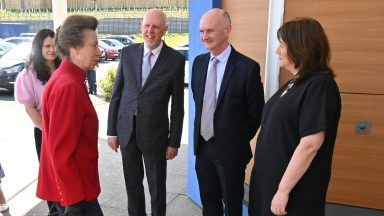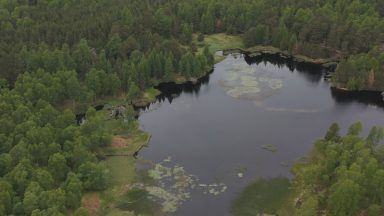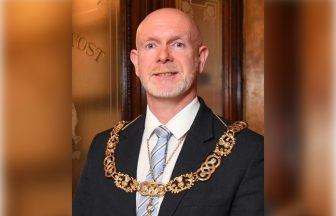Jane Forbes’ house in West Dunbartonshire is located next to the largest proposed battery energy storage site (BESS) in Europe.
Within the wider area, there are three such sites under consideration – a scenario that is causing her great anguish and concern.
The development would see large containers, equipment and new roads constructed in the fields right beside local housing.
“I don’t think the health and safety aspect of it is very good,” Jane told STV News.
“There needs to be legislation brought in so that these prospectors can’t just come in and find any empty land and start putting batteries on it.”
The number of battery energy storage sites being proposed in Scotland is expected to increase drastically as part of the move towards net zero.
The idea is that giant batteries will store excess power generated by renewables like wind and solar and be stored for future use.
But with the number of planning applications growing, residents across the country are worried about their impact and safety.
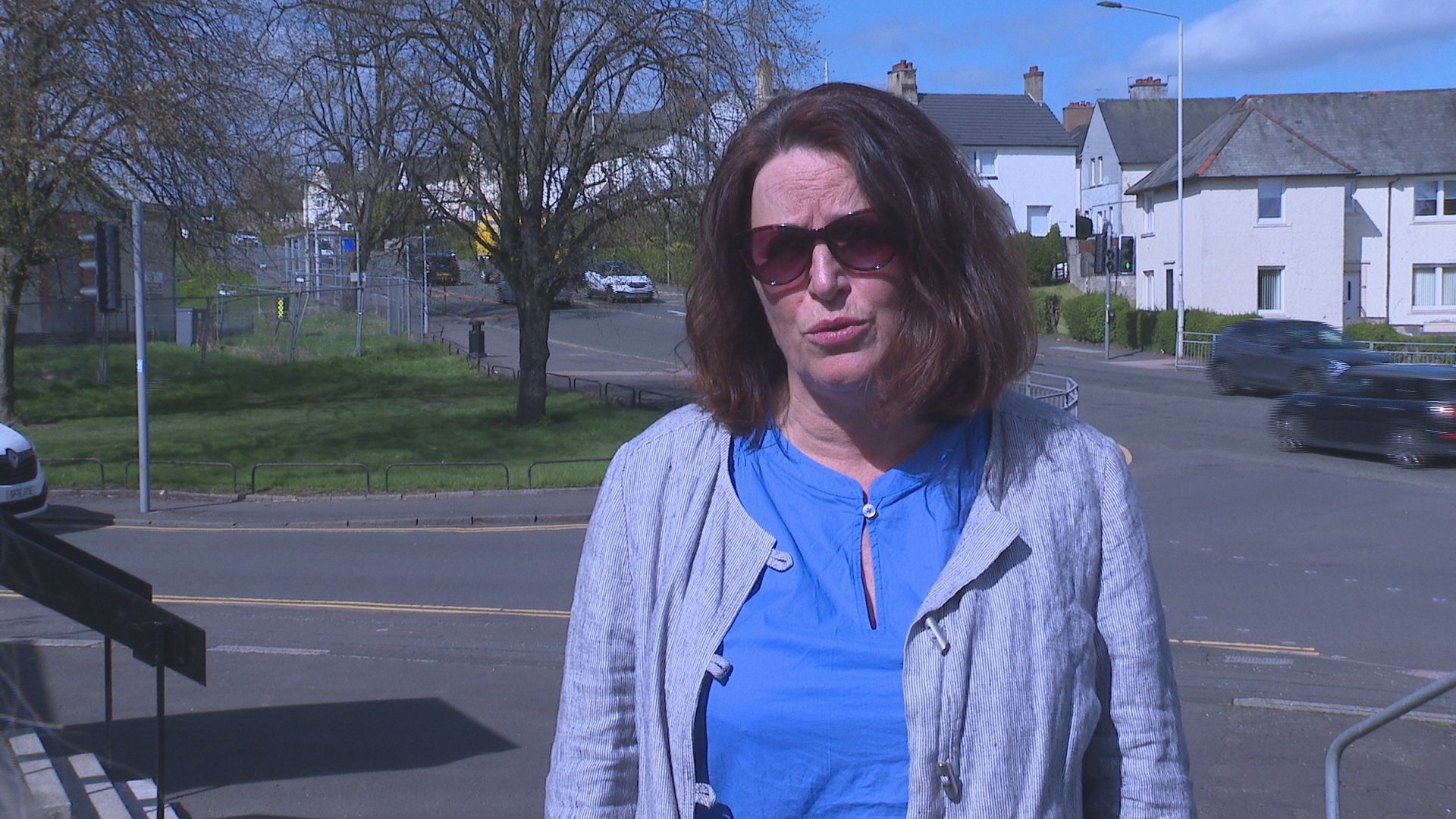 STV News
STV NewsJane is one of many local residents in Clydebank who oppose the BESS site at Whitehall Farm on Cochno Road, which is managed by green energy firm Apatura and was originally proposed as being the largest in Europe.
Jane told STV News: “The fact that there’s going to be three battery energy story sites proposed within our area is quite a lot to take in.
“They have only really got pictures of batteries and they’ve got pictures of the fields – they don’t really have any information other than pictures to show what it could look like.
“Sometimes, these sites, they start with one proposal and they end with something else, and they don’t always stick to the guidelines because there’s nobody to check them.
“We’re just hoping somebody slows down the proposals so that legislation can come into place and these sites can be managed properly and maybe by that time there will be an alternative to lithium, to something that’s a bit more health and safety conscious.”
Jane’s house is in West Dunbartonshire and the fields across the road, where the proposed BESS is to be situated, are in East Dunbartonshire
Locals are concerned about the health and safety risks of having such a site next to their homes, while both East Dunbartonshire and West Dunbartonshire councils say they have no decision-making powers as that sits with the Scottish Government’s Energy Consents Unit.
What are battery energy storage sites?
Battery Storage Sites house excess energy from the grid. When there’s high demand, they discharge it back into the system.
In Clydebank, three proposed sites have been submitted by three different companies. Currently, there aren’t any government regulations about who can build and manage the sites.
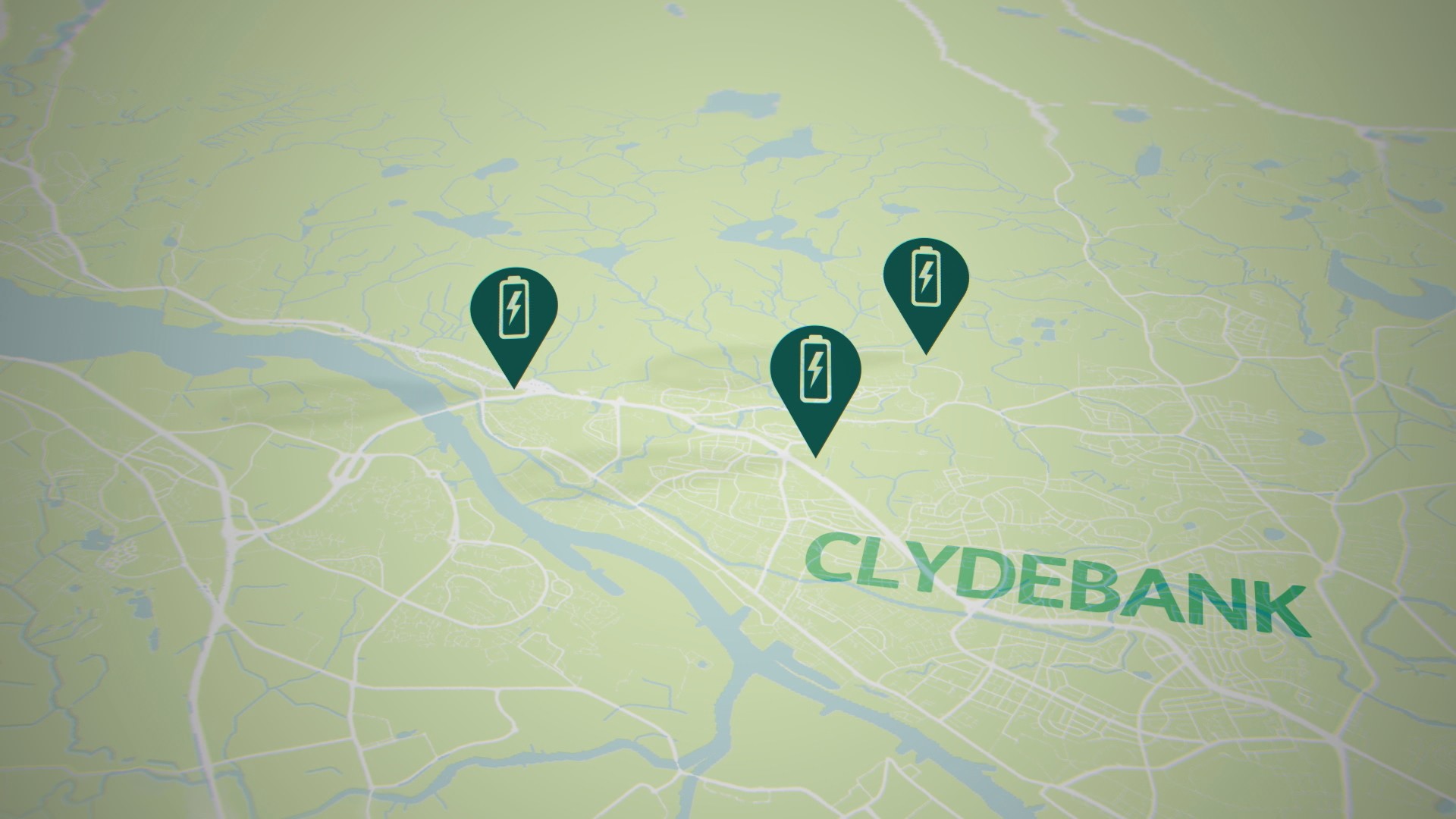 STV News
STV NewsWhile the size for one of these on Cochno Road has been reduced, the lack of clarity around healthy and safety is causing concern.
Meanwhile, almost 500 people have signed a petition against a different set of proposals by The Intelligent Land Investment Group to install a 100MW Energy Storage facility in the Braidfield area of the town.
The petition says the company’s proposal includes batteries, inverters, transformers and control equipment to be housed in steel containers of 13 metres by 2.5 metres by 2.6 metres high.
Consultation with local residents is vital
Intelligent Land Investment Group say that consulting with locals is a key part of the process.
Greig Templeton, the company’s project planning manager, told STV News: “The Scottish Government are promoting these types of projects, they recognise in a whole suite of different policies that energy storage is really important to help the country get to net zero.
“To facilitate that, it would be helpful if they could give a bit more specific guidance for local councillors on planning committees to help them with their decision-making.”
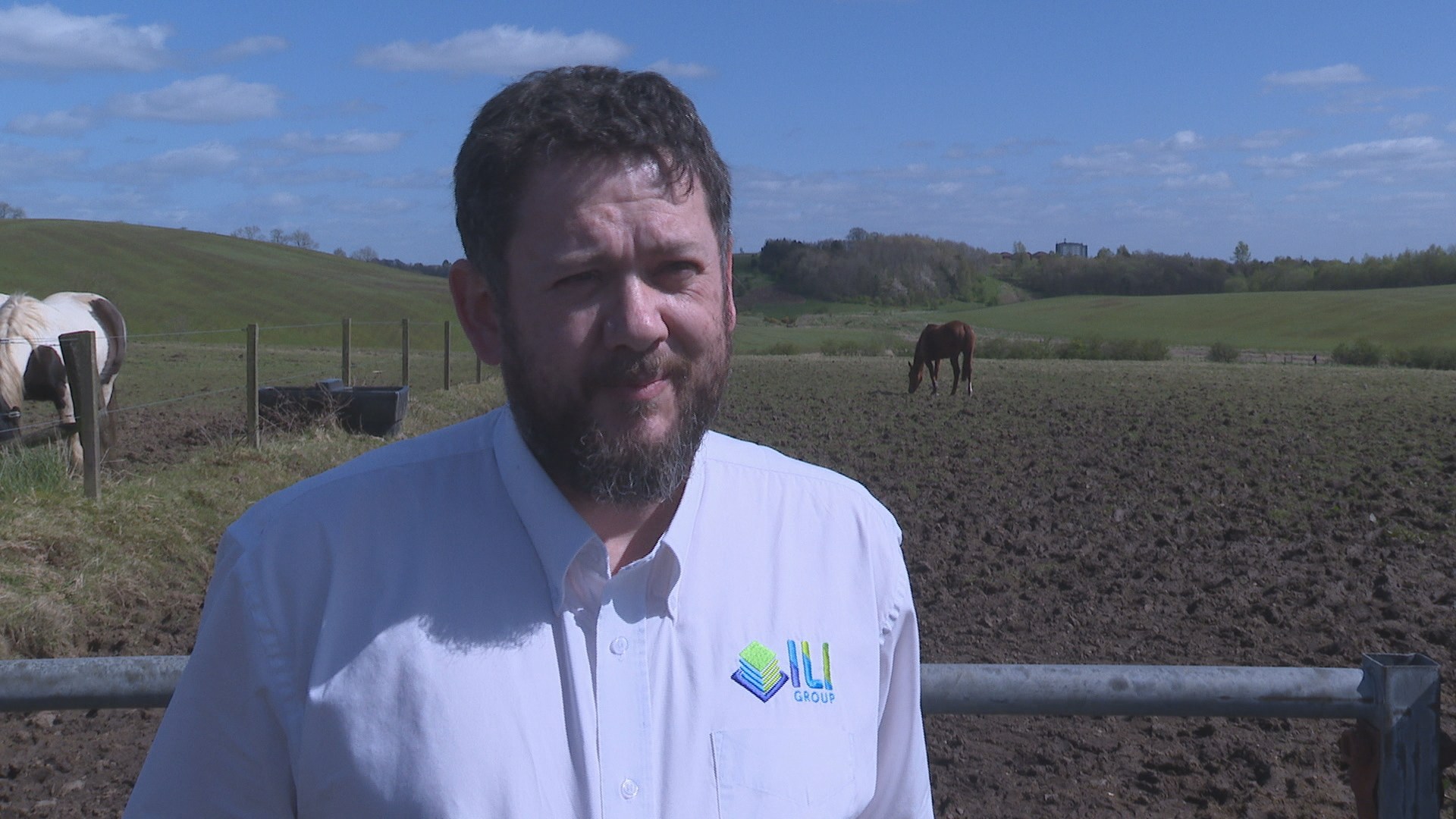 STV News
STV NewsMeanwhile, local authorities say they are taking action to address safety concerns.
Councillor Gordon Scanlan from West Dunbartonshire Council said: “I fully understand we need to meet our energy challenges, the needs nationally for battery storage.
“But I think there’s a number of significant safety concerns. having met the developers myself and having them admit there’s a lack of fire safety regulation in place for this specific type of battery on this very large site which was initially one of if not the biggest in Europe.
“There’s a number of other concerns including noise concerns. there’s going be a significant amount of noise when the batteries are discharging and recharging and that could be at all times of night.”
What is the Scottish Government saying?
The Scottish Government says all proposals are subject to site-specific assessments and ensure local communities have their say
Regarding the Whitehall BESS site in Clydebank, it says a decision will be taken by ministers in due course, following “consideration of the application information, consultation responses and representations made by members of the public”.
A spokesperson said: “Energy storage, including battery storage, has the potential to play a significantly greater role in the energy transition – providing flexibility services to the grid and helping to ensure a continued, resilient and secure electricity supply.
“The Fourth National Planning Framework (NPF4) places climate and nature at the centre of the planning system and makes clear the Scottish Government’s support for all forms of renewable, low-carbon and zero emission technologies, including energy storage.
“Potential impacts on communities, nature and other receptors are important considerations in the decision-making process. All applications are subject to site-specific assessments. In addition, our planning and consenting systems ensure local communities can have their say on planning applications.”
Follow STV News on WhatsApp
Scan the QR code on your mobile device for all the latest news from around the country


